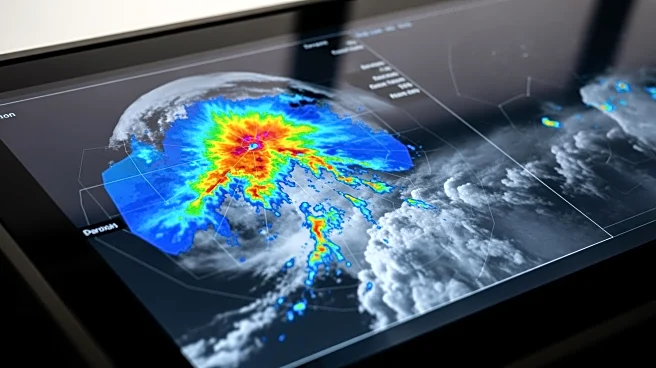What's Happening?
At the ANA Masters of Marketing Conference, YouTube and industry leaders emphasized the evolving role of video in shaping consumer behavior. Anne Marie Nelson-Bogle, vice-president of YouTube Ads, highlighted that video, particularly on YouTube, is central
to the consumer journey, serving as an active tool for problem-solving and decision-making. Jeff Greenspoon from Kantar presented research showing video’s influence beyond brand awareness, noting that 69% of U.S. consumers prefer video for learning and 70% watch how-to videos before trying products. The session underscored the shift from traditional TV to streaming, with YouTube becoming a core part of the living room experience. Sydney Morgan, a prominent YouTube creator, illustrated the professionalization of the creator economy, emphasizing the importance of authenticity and trust in content creation.
Why It's Important?
The insights shared at the conference underscore a significant shift in marketing strategies, with video becoming a pivotal element in consumer engagement and conversion. This transformation affects how brands allocate their advertising budgets, moving from traditional TV to digital platforms like YouTube. The emphasis on creator-driven content highlights a new trust economy, where authenticity and personal connection drive higher ROI and purchase intent. Brands that adapt to this new landscape by empowering creators and leveraging video as a strategic tool stand to gain a competitive edge in reaching and influencing consumers.
What's Next?
As video continues to evolve, marketers are encouraged to rethink their strategies, focusing on real-time engagement and creative flexibility. The panel suggested that brands should allow creators more freedom to express their unique voices, which can lead to more authentic and effective consumer connections. This approach may require brands to develop new metrics for measuring video impact and to embrace a more dynamic and responsive marketing model. The ongoing evolution of video formats and platforms will likely drive further innovation in how brands interact with consumers.
Beyond the Headlines
The rise of the creator economy represents a cultural shift in content production and consumption. As creators become more like traditional studios, employing teams and producing high-quality content, the lines between amateur and professional media blur. This democratization of content creation empowers individuals to influence public opinion and consumer behavior, challenging traditional media and advertising models. The ethical implications of this shift include the need for transparency and accountability in creator-brand partnerships to maintain consumer trust.

















